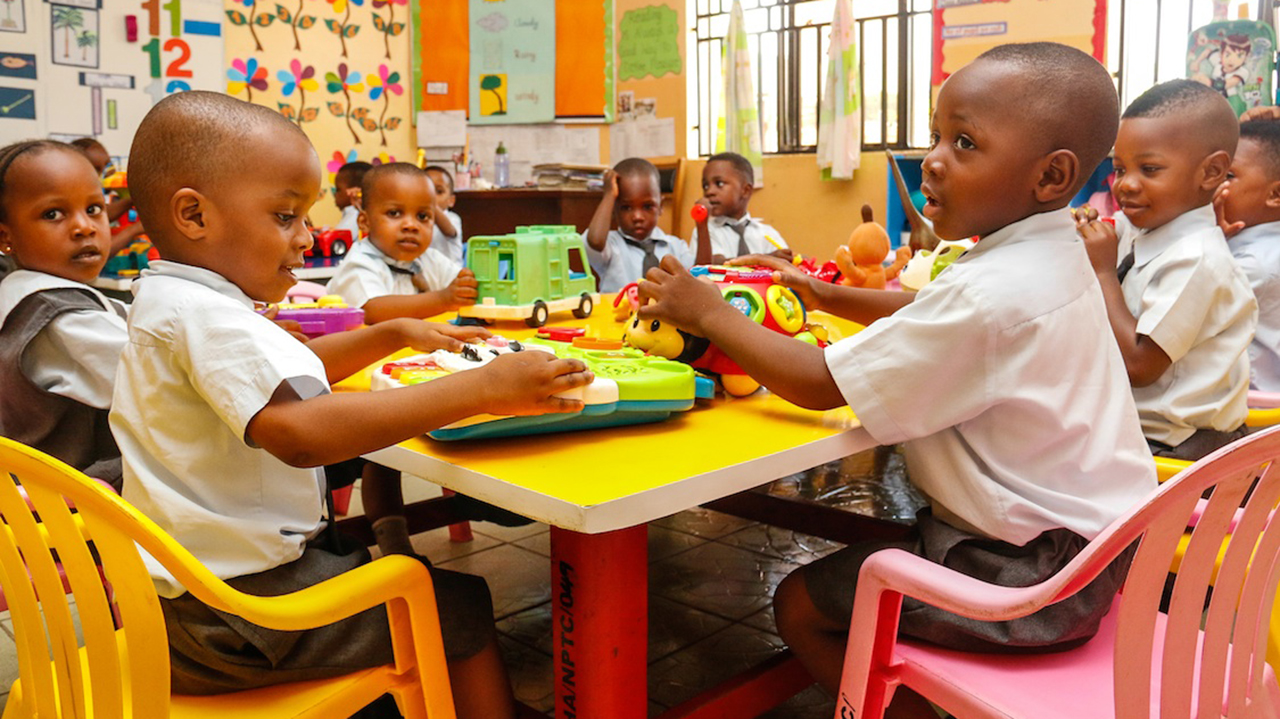
Saying quality pre-primary education is a needed foundation, as every stage that follows relies on its success, the body said children enrolled in at least one year of pre-primary education are more likely to develop the critical skills they need to succeed in school and less likely to repeat grades or drop out of school.
As a low-income country, Nigeria is one of the affected countries. How can the issue be tackled?
Educationist and Lead Consultant at 3Dimension Edibiz & Associates, Akin Benjamin defined pre-primary education as the body of knowledge, skills, experiences, and learning, which provides what is needed for successful everyday living, both at home and at school for children in the first six years of life.
He said: “This body of education is best acquired in recognised, registered and equipped schools, with trained professionals. Pre-primary education encourages children to develop self-confidence, self-esteem and makes them feel like valued individuals. It promotes children’s social, intellectual and physical development through play and structured activities, preparing them for a smooth transition to school.
“In pre-school education, children get to explore their environment and improve physical coordination, besides learning pre-literacy and pre-math skills. Activities in pre-school involve making kids climb, run, and engage in active play, thereby enabling them to develop fine motor skills.”
Benjamin explained that the role of pre-primary education is to ensure pupils’ broad-based development, which prepares them with skills to relate with their peers and adults for the purpose of love and affection.
“By creating a formal learning environment for children, pre-primary education helps them to understand the importance of learning and discipline,” he said. “The emphasis is on the child’s cognitive development, as learning is due to practice and interaction in a big group. Social interaction is the second most important feature of pre-school education. The kids learn to interact with their peers in supervised environment. They also learn to speak and develop language alongside other children.”
Underscoring the need for pre-school, especially now, with the current prevalence of the neurodevelopmental disorder in the society, Helen Oshikoya, a Child Developmental Clinician and CEO of Nobelova Gradani Psycho-educational Services, said the beauty of pre-school education lies in the effective building of needed foundational blocks through a system of scaffolding.
She said: “The scaffold enables children to release their tentacles and stand independently. There are so many issues that can affect a child, which include abnormal functioning. One of the most visible areas where pre-primary education is required is communication. Many children are not talking and not meeting their speech-language and communication milestones.
“So, you have children from ages three to five that are not able to talk. If parents embark on pre-primary education, they are able to detect children at risk of such challenges. Another advantage is in the area of dyslexia, which can be identified from six months to four years. So, if a child misses out on pre-school, the possibility is that that problem will not be detected, and the child will go on to develop more severe learning disabilities.
“In most countries, the pre-primary school is optional. Here in Nigeria, we have many private schools offering it, but unfortunately, they are very expensive. The quality of cheaper ones is very poor.”
Saying children are born to play, lawyer and child rights activist, Taiwo Akinlami explained that they learn best while playing.
He said: “They learn without being conscious of the fact. The peculiarity of pre-primary education is that it integrates this method of learning in the curriculum. The teaching method employed ignites the children’s curiosity and helps them to better engage and familiarise themselves with their immediate society.
“This enhances their capacity to think and thus sharpen their minds at an early stage. The presence of other children within the age group at school also helps the child’s learning process. Indeed, research has shown that children taught at an early age usually have improved social skills, fewer behavioural problems, and better grades without special attention.”
He added that a major highlight of pre-primary education is that it helps in the acquisition of symbolic thought—a type of thinking in which symbols or internal images are used to represent objects, persons, and events that are not present.
“Examples of symbolic thought are pretended play, drawing, writing, and speaking,” he explained. “Dr. Prabhat Kaushi said the most obvious sign of the development of symbolic thought in two to three-year-olds is the significant increase in the use of a miniature form of things around them and take themselves into a world of imagination, which becomes more elaborate as they grow.
“Pre-primary education also serves to catch them young. Early exposure to sound moral training (howbeit through play) helps children develop the right value and ideology in responding to issues that may arise to challenge their moral standing.
“UNICEF’s first-ever global report on pre-primary education disclosed that children enrolled in at least one year of pre-primary education grow into adults who contribute to peaceful societies and prosperous economies. The report concluded by saying evidence of the ways pre-primary education advances development exists around the world.”
Educationist, Ogechi Ofurum-Omeike agreed that pre-primary education is essential. Frowning at the idea of parents leaving their children at home or in the care of maids, she said: “Nowadays, kids are left at home from infancy, in the maid’s care and supervision or at a crèche. Though acquiring a maid’s services seems substantially cheaper, it is still not a favourable option. For many people, a maid often doubles as a nanny and a cook, as well as performs other domestic chores, which results in the maid giving limited attention to the child. And in most cases, the maid rarely enhances the child’s learning capacity or intellectual development.
“There was this scenario I handled in school. Timi, the son of a very educated couple, kept goofing on his homework, which was hampering his academic performances and grades. At a point, I couldn’t contain it anymore, as I knew Timi’s parents were educated and couldn’t possibly be unable to aid him appropriately in his homework. Further interactions with Timi’s parents revealed that, due to their busy job schedules, they left the management of the boy’s homework to their maid, who knew close to nothing academically.”
Proffering a solution, Oshikoya said: “I think we have to sit down as a nation and look at how to streamline these policies. Most school owners will tell you that the running cost of pre-school curriculum outweighs that of primary education, as so many materials and so much training are involved. So, it’s very difficult for them to reduce their costs.
“So, we have to now look at the government. What is the government doing to make pre-school education effective? That question needs to be answered by the government, because it is necessary. At the end of the day, the more you invest in pre-primary education, the less likely you are going to have children that will depend on the state for more advanced or complicated challenges.
“We have to look at the educational system in totality, and call a state of emergency on education, because we discovered that many Nigerian children are not meeting the international standards. The ones that are meeting the international standards are extremely brilliant, but the parents don’t have the money to fund their education further.
“Globally, the tendency is to have a degree and incur debts in the process. So, countries are wondering why future leaders should come out of school with huge debts, just because of education. They are looking at how to work out other more favourable alternatives. All these things work hand-in-hand. In the end, government initiative has to be pushed, whereby, pre-school education becomes more available and affordable.”
On her part, Ofurum-Omeike advocated the use of crèche and pre-school facilities.
She said: “Some parents argue that children that attend crèches and pre-schools were more prone to illnesses than kids cared for at home. Nevertheless, simple preventive methods are effective at reducing transmission of diseases, such as proper handwashing, cleanliness of changing areas, disinfection of contaminated areas, appropriate disposal of diapers, use of disposable tissues for blowing nose and separate workers for handling food (Nesti & Goldbaum, 2007). Through strict adherence to the recommended guidelines, the rate of illnesses in crèche and pre-school facilities could be substantially prevented.
“At a pre-school facility, it is less likely that the child will be physically assaulted, kidnapped or raped. Rather, they are professionally taken care of in a secure, structured and controlled environment. A pre-school environment improves a child’s vocabulary and social awareness, which enhances a child’s mental development.”
[ad unit=2]






